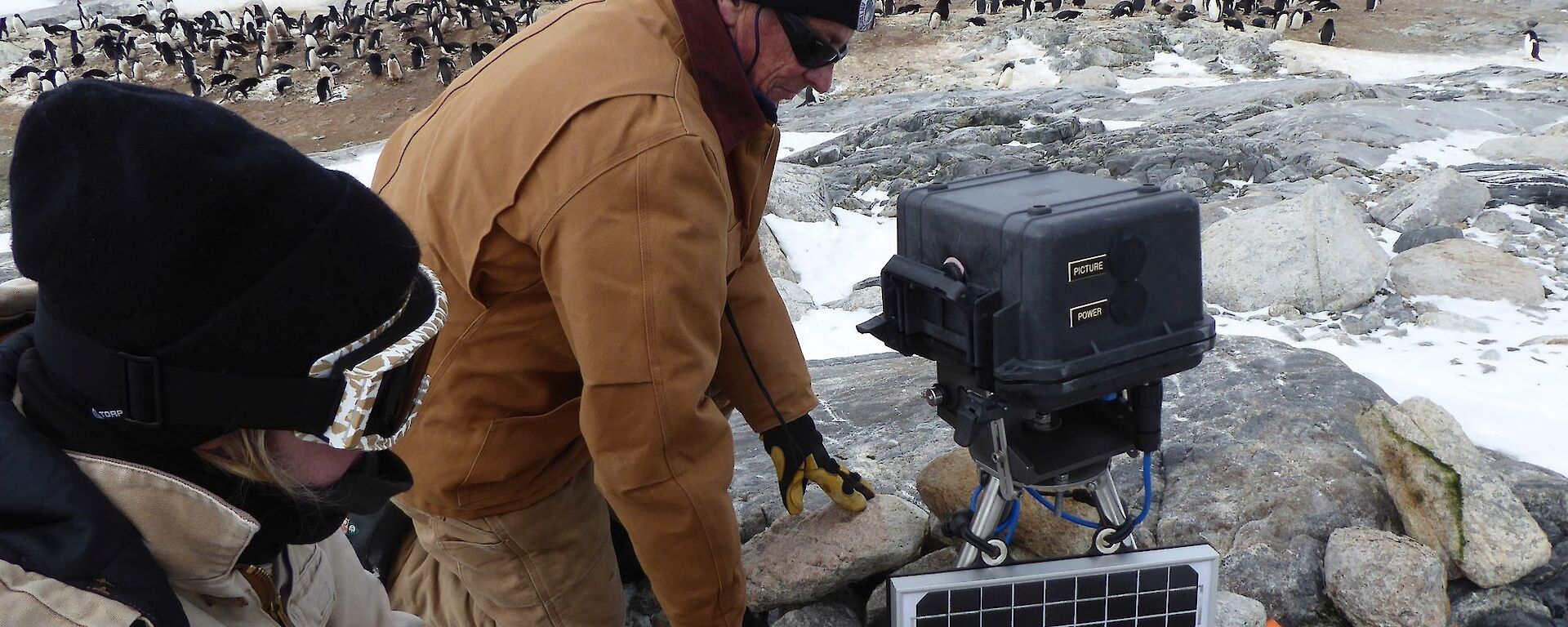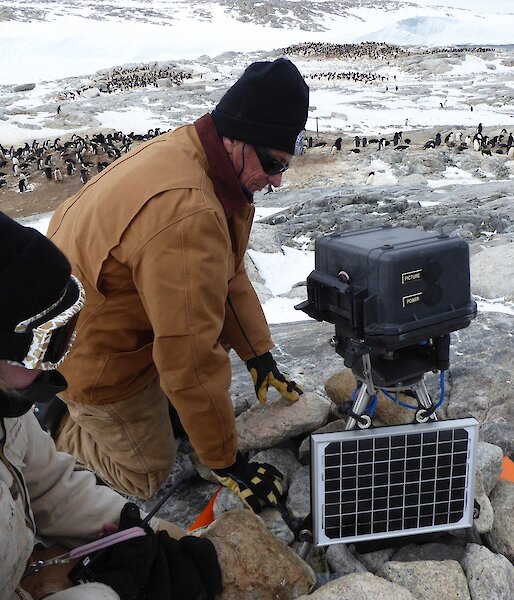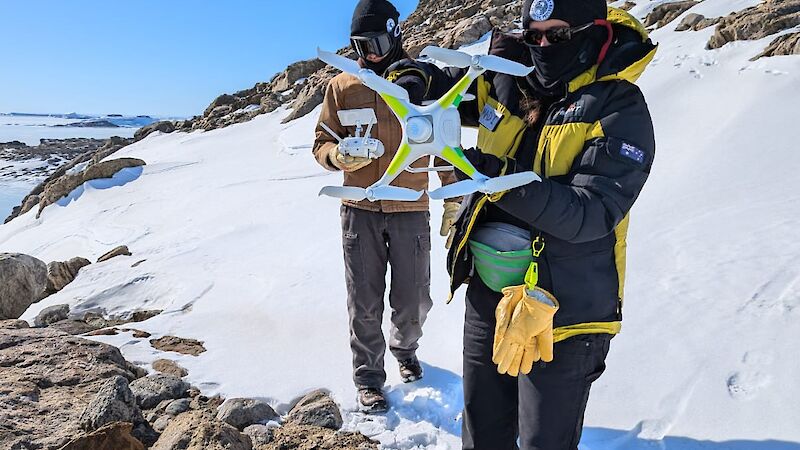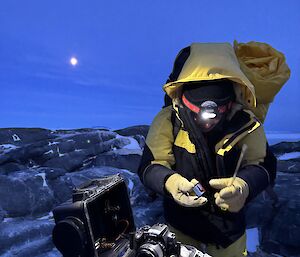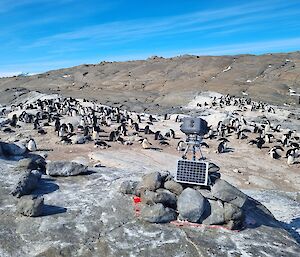Vertebrate Biologist
- The annual base salary when in Australia starts from $102,380 per annum.
- Base salary + additional allowances when in Antarctica starts from $172,917 per annum.
- A generous employer superannuation contribution of up to 15.4% will be paid in addition to salary and allowances.
- You will accrue recreation leave at the equivalent of 20 days per annum pro rata. Please note that recreation leave is not available in Antarctica but will be paid out on return to Australia.
The Vertebrate Biologist will conduct fieldwork as part of a team of two in the Mawson region in the 2026/27 summer field season as part of a long-term seabird research and monitoring program. The work will have a particular emphasis on assessing for signs of highly pathogenic avian influenza and meeting Australia’s international monitoring obligations on seabirds.
Lead Vertebrate Biologist
- The annual base salary when in Australia starts from $107,593 per annum.
- Base salary + additional allowances when in Antarctica starts from $178,130 per annum.
- A generous employer superannuation contribution of up to 15.4% will be paid in addition to salary and allowances.
- You will accrue recreation leave at the equivalent of 20 days per annum pro rata. Please note that recreation leave is not available in Antarctica but will be paid out on return to Australia.
The Lead Vertebrate Biologist is selected from the pool of successful Vertebrate Biologists and will take on a leadership role.
The Lead Vertebrate Biologist’s role is to apply professional knowledge, skills and previous experience to the collection, processing, collation, and review of data within an approved and established research program. The position has a particular emphasis on assessing for signs of highly pathogenic avian influenza (H5N1) and meeting Australia’s international monitoring obligations on seabirds. While in Antarctica, the position will also operate under the direction of the Voyage Leader on the ship and Station Leader while on station. The Lead Vertebrate Biologist will conduct fieldwork, apply professional knowledge and expertise as part of a team of two in the Mawson region in the 2026/27 summer field season as part of a long-term seabird research and monitoring program.
What we are looking for
Essential - Vertebrate Biologist
To apply for this role, you must have the skills and licences listed below.
Qualifications/licences
Provide copy with application:
- A degree or diploma in a relevant scientific or related discipline for an Australian tertiary institution, or a comparable overseas institution.
- Driver’s licence – Current, unrestricted “C” class (manual) Australian driver’s licence.
- Citizenship - In accordance with the PS Act 1999, APS employees are required to be Australian citizens. Persons who are not Australian citizens will generally only be considered where there are no suitable Australian applicants, with next considerations being Australian residents with work rights and New Zealand citizens.
Obtain prior to commencement:
- Valid Passport – The expiry date of the passport (and any relevant visa) must be at least 6 months beyond the planned end date of your intended stay in the Antarctic or sub-Antarctic
- Provide First Aid (HLTAID011) must be valid for at least 18 months beyond the date of commencement
- Provide basic emergency life support (HLTAID010) must be valid for at least 18 months beyond the date of commencement
- Provide CPR (HLTAID009) must be valid for at least 6 months beyond the date of commencement
Knowledge and experience
- Experience in the implementation of established survey methodologies; experience working in close proximity to seabird colonies, handling seabirds and collecting samples.
- Experience preparing for field seasons of long duration and/or in remote locations.
- Demonstrated adaptability and readiness to take on a wide range of tasks at short notice in dynamic field environments.
- Experience taking responsibility for, resources and program outcomes; ability to exercise sound independent judgement in relation to significant issues (e.g. safety, animal ethics, unexpected change).
- Experience working in small teams living and working in remote environments.
- Demonstrated ability to communicate with influence in oral and written form; well-developed communication and interpersonal skills.
- Experience in recording and managing field data in a thorough and organised manner; demonstrated ability to undertake routine, and at times tedious data entry and processing tasks; good organisational and report writing skills with attention to detail.
- Experience with software for data storage and manipulation (e.g. Microsoft Excel, Access, or R) and mapping (e.g. ArcGIS) would be an advantage. Capability in the analysis of ecological, population and/or monitoring data may also be an advantage.
Essential - Lead Vertebrate Biologist
To apply for this role, you must have the skills and licences listed below.
Qualifications/licences
Provide copy with application:
- A degree or diploma in a relevant scientific or related discipline for an Australian tertiary institution, or a comparable overseas institution.
- Driver’s licence – Current, unrestricted “C” class (manual) Australian driver’s licence.
- Citizenship - In accordance with the PS Act 1999, APS employees are required to be Australian citizens. Persons who are not Australian citizens will generally only be considered where there are no suitable Australian applicants, with next considerations being Australian residents with work rights and New Zealand citizens.
Obtain prior to commencement:
- Valid Passport – The expiry date of the passport (and any relevant visa) must be at least 6 months beyond the planned end date of your intended stay in the Antarctic or sub-Antarctic
- Provide First Aid (HLTAID011) must be valid for at least 18 months beyond the date of commencement
- Provide basic emergency life support (HLTAID010) must be valid for at least 18 months beyond the date of commencement
- Provide CPR (HLTAID009) must be valid for at least 6 months beyond the date of commencement
Knowledge and experience
- Recent experience in leading and implementing seabird monitoring programs.
- Previous experience using methods and equipment relevant to the Mawson seabird monitoring program, including conducting ground and aerial seabird population surveys; attaching and retrieving instruments to/from penguins and flying seabirds; monitoring breeding success; performing mark-resight studies; collecting samples to assess diet; and operating and maintaining photographic and other scientific equipment, including image processing.
- Experience working in close proximity to seabird colonies, including the capture and handling of seabirds, and collecting biological samples (blood, faeces, feathers) effectively and ethically for research.
- Ability to prepare and lead a field program with minimal pre-season or on-ground training.
- Demonstrated adaptability and readiness to take on a wide range of tasks at short notice in dynamic field environments.
- Proven experience managing people, resources, and program outcomes effectively, with sound independent judgment on critical issues such as safety, animal ethics, and unexpected changes. Experienced in working within small teams in remote environments.
- Capable of training a team member in current scientific and operational aspects of the established monitoring program during the coming field season.
- Demonstrated ability to communicate with influence in oral and written form; well-developed communication and interpersonal skills.
- Experience in recording and managing field data in a thorough and organised manner, demonstrating strong organisational and report writing skills with attention to detail; including the ability to undertake routine and occasionally tedious data entry and processing tasks efficiently.
- Experience with software for data storage and manipulation (e.g. Microsoft Excel, Access, or R) and mapping (e.g. ArcGIS) would be an advantage. Capability in the analysis of ecological, population and/or monitoring data.
Desirable - Vertebrate Biologist & Lead Vertebrate Biologist
These are not essential to the role, however, to be suitable you will need to have at least some of these. We encourage you to apply even if you do not have all the desirable requirements.
Knowledge and experience
- Skills in any of the following areas may be an advantage: animal handling, attachment of instruments to animals, population survey methods, data processing.
- A drone pilot licence with experience in surveying wildlife populations may be an advantage. If you hold this licence, you will be required to undergo a Safety Sensitive Aviation Activity (SSAA) screening.
Contact
For general enquiries, please email the Hays Expeditioner Recruitment Team at antarctica@hays.com.au.
For job specific (technical or trade related) enquiries, or to discuss the role in more detail, please contact Hays Team at antarctica@hays.com.au.

